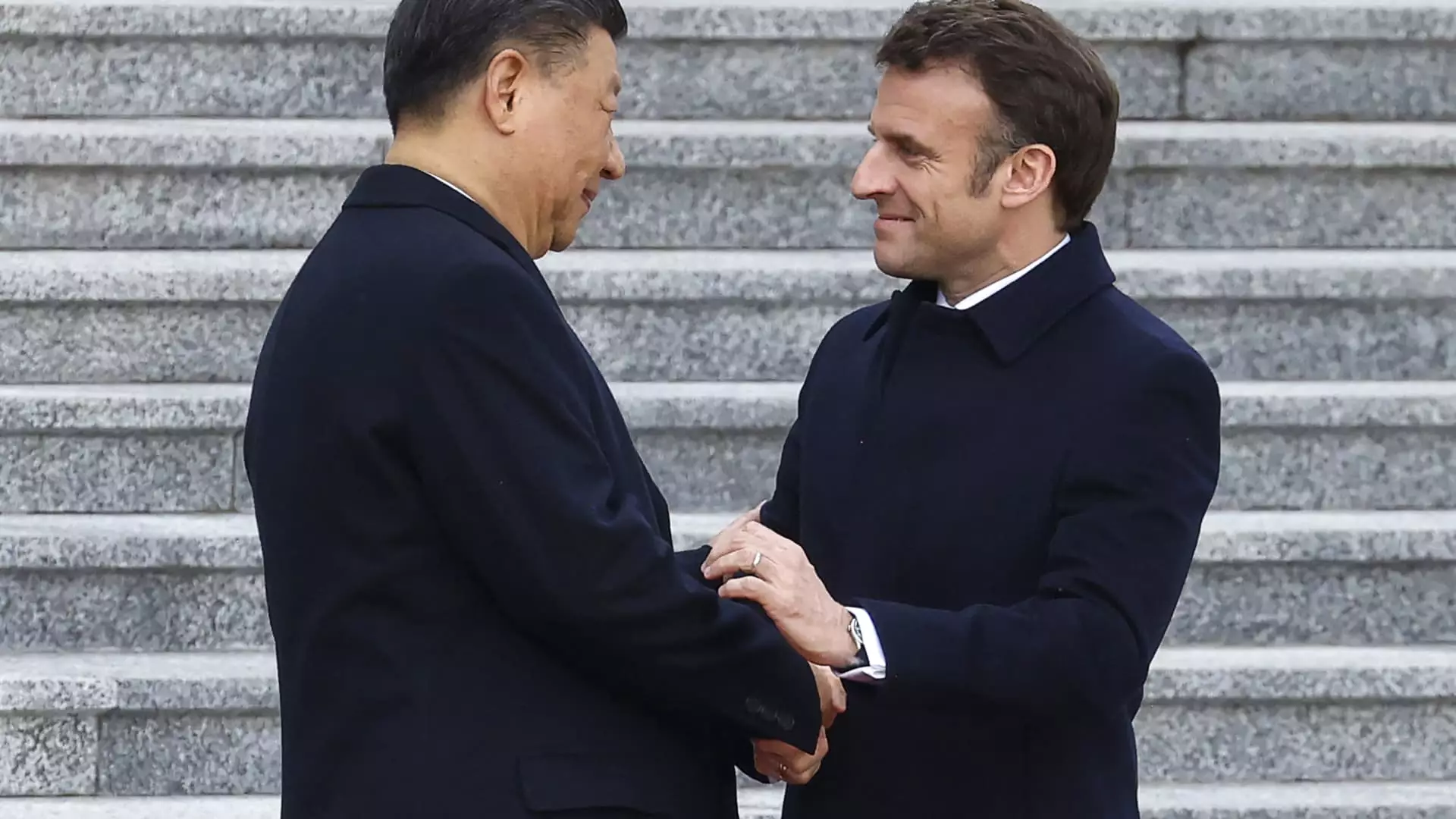President Xi Jinping of China is set to begin a two-day visit to Paris, where he will meet with French President Emmanuel Macron. One of the main objectives during this visit is for Macron to address concerns about trade imbalances between France and China. The timing of Xi’s visit is crucial as Europe is currently grappling with escalating trade tensions with China. France has been vocal in its support for an EU investigation into Chinese exports of electric vehicles and recently faced retaliation in the form of a Chinese investigation into imports of French brandy. These disputes highlight the challenges of achieving balanced trade relations between the two countries.
The European Union’s efforts to influence China are hindered by internal divisions, particularly between major players like France and Germany. Notably, German Chancellor Olaf Scholz will not be present at the meetings in Paris. This lack of unity among EU members weakens their leverage in negotiations with China. As Noah Barkin, a senior adviser on EU-China relations, pointed out, conflicting messages from European leaders diminish their ability to effectively engage with Xi. Macron’s goal of rallying EU support to pressure China to intervene in the Ukraine conflict may face obstacles due to these internal divisions.
While discussing trade issues, France will also seek to address barriers to its agricultural exports in the Chinese market. Additionally, concerns related to intellectual property rights in the French cosmetic industry are on the agenda. Macron’s administration is eager to encourage China to use its influence with Russia to de-escalate tensions in Ukraine. However, progress in this area has been limited, apart from Xi’s phone call to Ukrainian President Zelenskiy following Macron’s visit to Beijing last year. French officials hope that by engaging with China on these critical issues, they can sway Chinese policymakers to consider the EU’s perspective seriously.
Macron’s decision to take Xi to the Pyrenees, a place of personal significance for the Chinese President, is seen as a strategic move to build a personal connection. Similarly, Xi previously hosted Macron at a tea ceremony in Guangzhou, his father’s former residence. These gestures aim to foster a rapport between the leaders, but experts like Barkin caution against expecting too much from such symbolic acts. While personal connections can play a role in diplomacy, substantive policy changes require more concrete actions and negotiations. Xi’s upcoming visits to Serbia and Hungary underscore China’s strategic interests beyond the EU.
President Xi Jinping’s visit to Paris represents a crucial moment in EU-China relations, with trade tensions, diplomatic objectives, and personal dynamics at play. France’s efforts to engage with China on trade issues and geopolitical concerns are met with challenges due to internal EU divisions. Macron’s diplomatic approach, including symbolic gestures and personal connections, may set the stage for future negotiations but cannot guarantee immediate breakthroughs. As Xi’s visit unfolds, observers will closely watch for signs of progress on trade, agriculture, intellectual property, and Ukraine-related issues. The outcomes of this visit will shape the future landscape of EU-China relations and influence broader geopolitical dynamics.


Leave a Reply